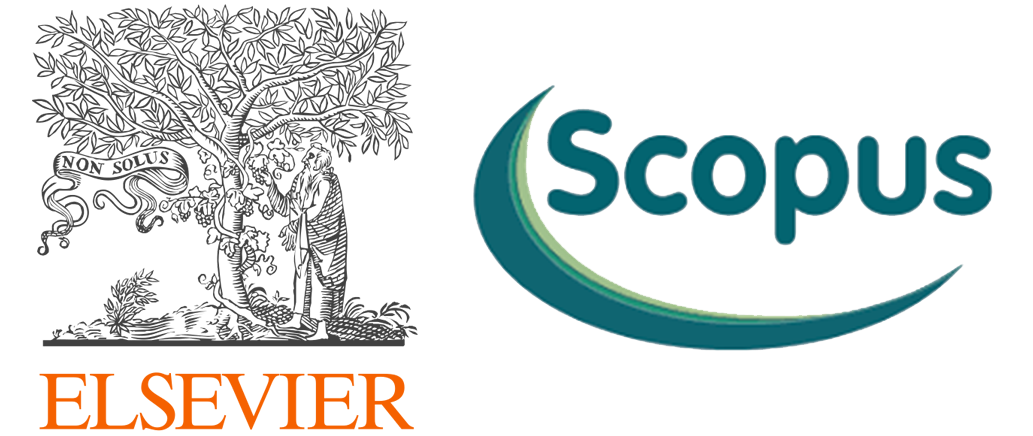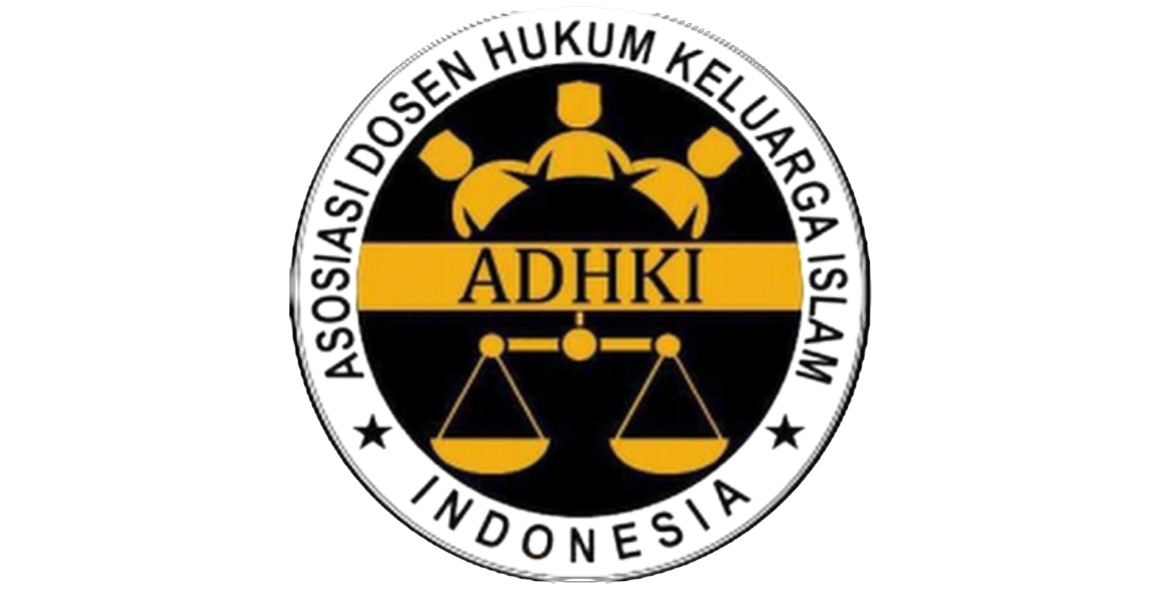Challenging the Status Quo: Khaled M. Abou El Fadl’s Perspectives on Islamic Legal Authority and the Restrictive Fatwa on Women’s Solo Travel
Abstract
This article discusses Khaled M. Abou El Fadl’s (El Fadl) views on Islamic legal authority and his critique of the fatwa prohibiting women from travelling alone without a maḥram (unmarriageable kin) issued by the Council for Scientific Research and Legal Opinions (CRLO), Saudi Arabia. This research employs a literature review method by analysing several fatwas issued by the CRLO and several of El Fadl’s works as primary sources. The research findings indicate that El Fadl strives to formulate an authoritative and progressive Islamic law. El Fadl criticises the CRLO’s authoritarian fatwa regarding the prohibition of women travelling alone without a maḥram using a hermeneutic framework. El Fadl emphasises that the reader must understand the message of the religious text by connecting the text at the time of its revelation with the current text, considering the text’s competence, meaning determination, and representation. According to El Fadl, the hadith text used as a basis by the CRLO is no longer relevant in the current context because of the sense of security can be overcome on which the fatwa is based. The author argues that El Fadl’s views belong to progressive Muslim thinking. This article is expected to contribute to the discourse on openness and inclusivity in Islam.
References
Ahmed, Leila. Women and Gender in Islam: Historical Roots of a Modern Debate. New Haven: Yale University Press, 1992.
Aibak, Kutbuddin. Membaca Otoritas dalam Hukum Islam Bersama Khaled M. Abou El Fadl. Yogyakarta: Pustaka Pelajar, 2017.
Al-Akiti, Shayk Muhammad Afifi, and H.A. Hellyer. ‘Response to Khaled Abou El Fadl’. In ‘War on Terror’: The Oxford Amnesty Lectures, edited by Chris Miller, 1st ed., 304. Manchester University Press, 2016. https://doi.org/10.7765/9780719095184.00020.
An-Chi Hoh Dianu. Edited by Khaled M. Abou El Fadl. The Library Quarterly: Information, Community, Policy 73, no. 2 (2003): 211–13.
Brown, L. Carl, and Khaled M. Abou El Fadl. ‘The Great Theft: Wrestling Islam from the Extremists’. Foreign Affairs 85, no. 2 (2006): 201. https://doi.org/10.2307/20031953.
Duderija, Adis. ‘Contemporary Muslim Male Reformist Thought and Gender Equality Affirmative Interpretations of Islam’. Feminist Theology 28, no. 2 (15 January 2020): 161–81. https://doi.org/10.1177/0966735019886076.
El Fadl, Khaled Abou. Melawan Tentara Tuhan: Yang Berwenang dan yang Sewenang-Wenang dalam Islam. Translated by Kurniawan Abdullah. Jakarta: PT. Serambi Ilmu Semesta, 2003.
———. Speaking in God’s Name: Islamic Law, Authority and Women. Oxford: Oneworld, 2005.
———. ‘Islam and The Challenge of Democratic Commitment’. Oriente Moderno 87, no. 2 (2007): 247–300.
———. ‘Law of Duress in Islamic Law and Common Law: A Comparative Study’. Islamic Studies 30, no. 3 (1991): 305–50.
Faiz, Muhammad Fauzinuddin. ‘Pembacaan Baru Konsep Talak: Studi Pemikiran Muhammad Sa‘id Al-‘Asymāwī’. Epistemé: Jurnal Pengembangan Ilmu Keislaman 10, no. 2 (12 November 2015): 273–90. https://doi.org/10.21274/epis.2015.10.2.273-290.
———. ‘Pemikiran Jamal Al-Banna tentang Relasi Suami Isteri dalam Kitab Al-Mar’ah al-Muslimah baina Tahrīr al-Qur’ȃn wa Taqyīd al-Fuqahȃ’. Al-Mazaahib: Jurnal Perbandingan Hukum 3, no. 1 (1 June 2015): 55–70. https://doi.org/10.14421/al-mazaahib.v3i1.1380.
———. ‘Teori Hermeneutika Al-Qur’an Naṣr Hamid Abu Zayd dan Aplikasinya terhadap Wacana Gender dalam Studi Hukum Islam Kontemporer’. Al-Ahwal: Jurnal Kajian Hukum Keluarga dan Kajian Keislaman 7, no. 1 (1 April 2015): 23–32.
Hakim, Muhammad Lutfi. ‘Hermeneutik-Negosiasi dalam Studi Fatwa-Fatwa Keagamaan: Analisis Kritik terhadap Pemikiran Khaled M. Abou El Fadl’. Istinbath 19, no. 1 (16 July 2020): 27–52. https://doi.org/10.20414/ijhi.v19i1.204.
Htun and Weldon. ‘State Power, Religion, and Women’s Rights: A Comparative Analysis of Family Law’. Indiana Journal of Global Legal Studies 18, no. 1 (2011): 145. https://doi.org/10.2979/indjglolegstu.18.1.145.
Johnston, David. ‘Maqāsid Al-Sharīa: Epistemology and Hermeneutics of Muslim Theologies of Human Rights’. Die Welt Des Islams 47, no. 2 (1 January 2007): 149–87. https://doi.org/10.1163/157006007781569936.
Johnston, David L. ‘Islam and Human Rights: A Growing Rapprochement?’ American Journal of Economics and Sociology 74, no. 1 (January 2015): 113–48. https://doi.org/10.1111/ajes.12085.
Kaul, Volker. ‘Islam and Democracy’. In Identity and the Difficulty of Emancipation, by Volker Kaul, 111–19. Philosophy and Politics - Critical Explorations. Cham: Springer International Publishing, 2020. https://doi.org/10.1007/978-3-030-52375-6_10.
Lowry, Joseph E. ‘Rebellion and Violence in Islamic Law. By Khaled Abou El Fadl. 2001. Cambridge: Cambridge University Press, 2002.’ Journal of Near Eastern Studies 65, no. 3 (July 2006): 211–12. https://doi.org/10.1086/508581.
Mernissi, Fatima. The Veil and the Male Elite: A Feminist Interpretation of Women’s Rights in Islam. Reading, Mass: Addison-Wesley Pub. Co, 1991.
Mustaqim, Abdul. Paradigma Tafsir Feminis: Membaca Al-Qur’an dengan Optik Perempuan. Yogyakarta: Logung Pustaka, 2008.
Muzayyin, Muzayyin. ‘Hermeneutika Hukum Islam Khaleed Abou El Fadl: Sebuah Tawaran dalam Membendung Otoritarianisme Fatwa MUI’. Potret Pemikiran 20, no. 1 (1 July 2018): 61–86. https://doi.org/10.30984/pp.v20i1.749.
Naʿīm, ʿAbdallāh Aḥmad. Islam and the Secular State: Negotiating the Future of Shariʿa. 1st ed. Cambridge, Mass.: Harvard Univ. Press, 2009.
Raisul, Raisul. ‘Pemikiran Hukum Islam Khaled Abou El Fadl’. Mazahib 14, no. 2 (2015): 145–58. https://doi.org/10.21093/mj.v14i2.343.
Slater, Angus M. ‘Khaled Abou El Fadl’s Methodology of Reform: Law, Tradition, and Resisting the State’. Journal of Law, Religion and State 4, no. 3 (10 September 2016): 293–321. https://doi.org/10.1163/22124810-00403003.
———. ‘Queer(Ing) Notions of Islamic Authority: A Methodological Disposition in the Work of Khaled Abou El Fadl’. Theology & Sexuality 22, no. 1–2 (16 May 2016): 25–41. https://doi.org/10.1080/13558358.2017.1296686.
———. ‘Relationality and the Gadamerian “Horizontverschmelzung”: Khaled Abou El Fadl’. ReOrient 6, no. 1 (1 October 2020): 47–64. https://doi.org/10.13169/reorient.6.1.0047.
Syaddad, Irza Anwar. ‘Negotiative Hermeneutics of Khaled Abou El Fadl: Truth Postponement and Negotiating the Meaning of Text in Speaking in God’s Name’. Jurnal Ushuluddin 28, no. 2 (31 December 2020): 140–54. https://doi.org/10.24014/jush.v28i2.10189.
Tsourlaki, Sofia. ‘Khaled Abou El Fadl and Amina Wadud’s (Re)Politicisation of the Mosque and Employment of Social Media as a Means of Shaping Religious Identity Based on Values of Progressive Islam’. Contemporary Islam 14, no. 3 (1 November 2020): 309–29. https://doi.org/10.1007/s11562-020-00453-z.
Copyright (c) 2023 Muhammad Fauzinudin Faiz, Dawam Multazamy Rohmatulloh, Muhammad Solikhudin

This work is licensed under a Creative Commons Attribution-NonCommercial 4.0 International License.










